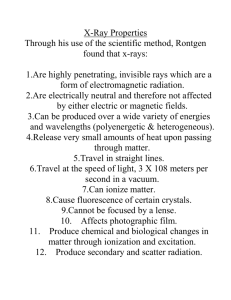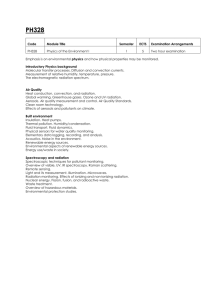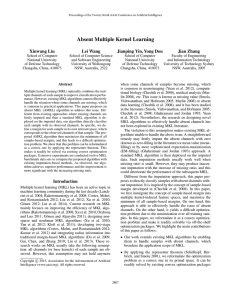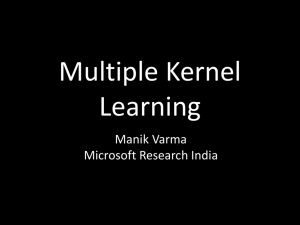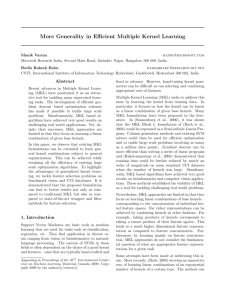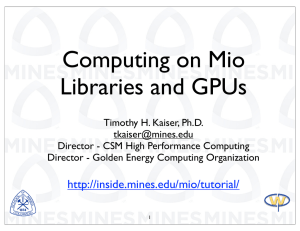Annual Report 2012
advertisement
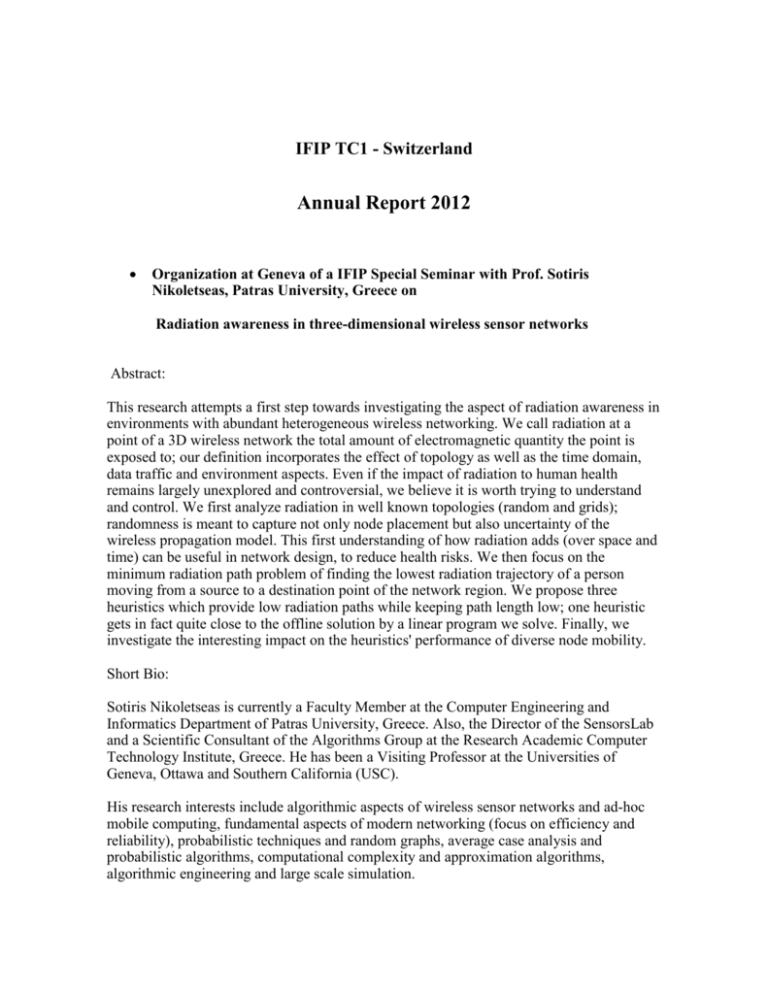
IFIP TC1 - Switzerland
Annual Report 2012
Organization at Geneva of a IFIP Special Seminar with Prof. Sotiris
Nikoletseas, Patras University, Greece on
Radiation awareness in three-dimensional wireless sensor networks
Abstract:
This research attempts a first step towards investigating the aspect of radiation awareness in
environments with abundant heterogeneous wireless networking. We call radiation at a
point of a 3D wireless network the total amount of electromagnetic quantity the point is
exposed to; our definition incorporates the effect of topology as well as the time domain,
data traffic and environment aspects. Even if the impact of radiation to human health
remains largely unexplored and controversial, we believe it is worth trying to understand
and control. We first analyze radiation in well known topologies (random and grids);
randomness is meant to capture not only node placement but also uncertainty of the
wireless propagation model. This first understanding of how radiation adds (over space and
time) can be useful in network design, to reduce health risks. We then focus on the
minimum radiation path problem of finding the lowest radiation trajectory of a person
moving from a source to a destination point of the network region. We propose three
heuristics which provide low radiation paths while keeping path length low; one heuristic
gets in fact quite close to the offline solution by a linear program we solve. Finally, we
investigate the interesting impact on the heuristics' performance of diverse node mobility.
Short Bio:
Sotiris Nikoletseas is currently a Faculty Member at the Computer Engineering and
Informatics Department of Patras University, Greece. Also, the Director of the SensorsLab
and a Scientific Consultant of the Algorithms Group at the Research Academic Computer
Technology Institute, Greece. He has been a Visiting Professor at the Universities of
Geneva, Ottawa and Southern California (USC).
His research interests include algorithmic aspects of wireless sensor networks and ad-hoc
mobile computing, fundamental aspects of modern networking (focus on efficiency and
reliability), probabilistic techniques and random graphs, average case analysis and
probabilistic algorithms, computational complexity and approximation algorithms,
algorithmic engineering and large scale simulation.
He has coauthored over 150 publications in international Journals and refereed
Conferences, 18 Invited Chapters in Books by major publishers and two Books, one on the
Probabilistic Method and another one on theoretical aspects of sensor networks (Springer
Verlag). He has served as the Program Committee Chair of several Conferences (including
ALGOSENSORS 2011, MOBIWAC 2011, SEA 2005, MSWiM 2007 and DCOSS 2008),
and as Associate Editor, Editor of Special Issues and Member of the Editorial Board of
major Journals (like TCS, IEEE TC, COMNET). He has co-initiated international events
related to sensor networks (ALGOSENSORS, DCOSS) and has organized several
conferences in Greece (WEA 05, IPDPS 06, MSWiM 07, DCOSS 08). He has delivered
several invited talks and tutorials.
He has participated/coordinated several externally funded RD Projects related to
fundamental aspects of modern networks, mainly by the European Union (EU) Future and
Emerging Technologies (FET) and Future Internet Research and Experimenatation (FIRE)
Actions of the Information and Communications Technology (ICT) Programme.
Date: Tuesday June 5th, 2012, 4:15pm
Place: Battelle building A - Auditorium (ground floor)
Organization at Geneva of a IFIP Special Seminar with Prof. Ulf Brefeld,
Technical University of Dortmund on
$l_p$-Norm Multiple Kernel Learning
Abstract
Learning linear combinations of multiple kernels is an appealing strategy when the right
choice of features is unknown. Previous approaches to multiple kernel learning (MKL)
promote sparse kernel combinations to support interpretability and scalability.
Unfortunately, this $l_1$-norm MKL is rarely observed to outperform trivial baselines in
practical applications. To allow for robust kernel mixtures that generalize well, we extend
MKL to arbitrary norms. We devise new insights on the connection between several
existing MKL formulations and develop two efficient interleaved optimization strategies
for arbitrary norms, that is $l_p$-norms with p>=1. This interleaved optimization is much
faster than the commonly used wrapper approaches, as demonstrated on several data sets. A
theoretical analysis and an experiment on controlled artificial data shed light on the
appropriateness of sparse, non-sparse and $l_{\infty}$ norm MKL in various scenarios.
Importantly, empirical applications of $l_p$-norm MKL to three real-world problems from
computational biology show that non-sparse MKL achieves accuracies that surpass the
state-of-the-art.
Short Bio:
Ulf Brefeld recently joined the Technical University of Dortmund. Prior to that he worked
at University of Bonn, Yahoo! Research Barcelona and in machine learning groups at
Technische Universität Berlin, Max Planck Institute for Computer Science in Saarbrücken
and Humboldt-Universität zu Berlin. He received a Diploma in Computer Science in 2003
from Technische Universität Berlin and a Ph.D. (Dr. rer. nat.) in 2008 from Humboldt-
Universität zu Berlin. He works in statistical machine learning and data mining. This
includes learning from structured data, kernel methods, semi-supervised techniques,
information extraction/retrieval, and applications in natural language processing and
computational biology.
Date: Monday October 22th, 2012, 10:00am
Location: Battelle bât D, room D185
Divulgation at the TC1 activities at the following conferences:
IEEE DCOSS:
The 8th IEEE International Conference on Distributed Computing in Sensor Systems
(DCOSS '12) took place in Hangzhou, China, May 2012
SEA 2012:
The 11th Symposium on Experimental Algorithms took place on June 2012 in
Bordeaux, France. This is an event intended to be an international forum for researchers in
the area of experimental evaluation and engineering of algorithms, as well as in various
aspects of computational optimization and its applications.
IPDPS 2012:
26th IEEE International Symposium on Parallel and Distributed Processing, IPDPS 2012,
took place in Shanghai, China, May, 2012.
Random-Approx 12
The 15th. International Workshop on Approximation Algorithms for Combinatorial
Optimization Problems (APPROX'2012), and the 16th. International Workshop on
Randomization and Computation (RANDOM'2012) was held at the MIT, Cambridge, USA,
in Aug. 2012.
